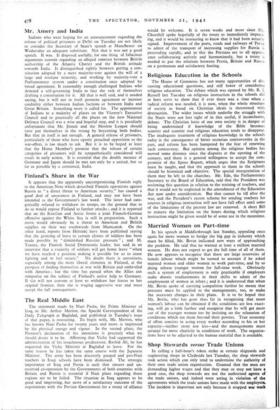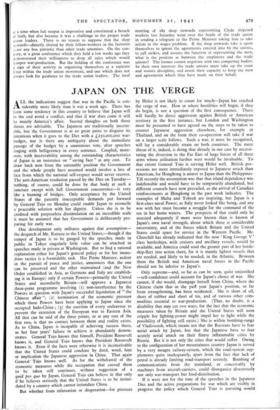Shop Stewards versus Trade Unions In calling a half-hour's token
strike at certain shipyards and engineering shops in Clydeside last Tuesday, the shop stewards took action which can only tend to undermine the authority of their own trade union organisation. Granted that the men are demanding higher wages and that they may or may not have good case, the shop stewards are not the authorised agents of the trade unions, and indeed were acting in violation of tho agreements which the trade unions have made with the employer& The incident is important not only because it stopped war work
at a time when full output is imperative and constituted a breach of faith, but also because it was a challenge to the proper trade union leaders. There is no reason to suppose that the shop stewards—directly elected by their fellow-workers in the factories —are any less patriotic than other trade unionists. On the con- trary, at a great conference which they held a few weeks ago ihey demonstrated their willingness to drop all rules which would hamper war-production. But the holding of the conference was a sign of their activity in organising themselves as a separate force within the trade union movement, and one which does not always look for guidance to the trade union leaders. The local meeting of 182 shop stewards representing Clyde shipyard workers last Saturday went over the heads of the trade union in sending a telegram to the Prime Minister asking him to take action in the wages problem. If the shop stewards take it upon themselves to ignore the agreements entered into by the unions, to call strikes, and assume the function of representing the men, what is the position as between the employers and the trade unions? The former cannot negotiate with two competing bodies. In their own interests the trade unions must take up the issue and restore discipline, and assert their capacity to keep the men and agreements which they have made on their behalf.



























 Previous page
Previous page